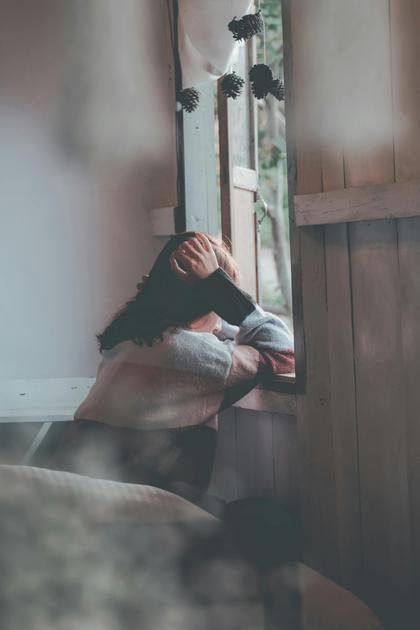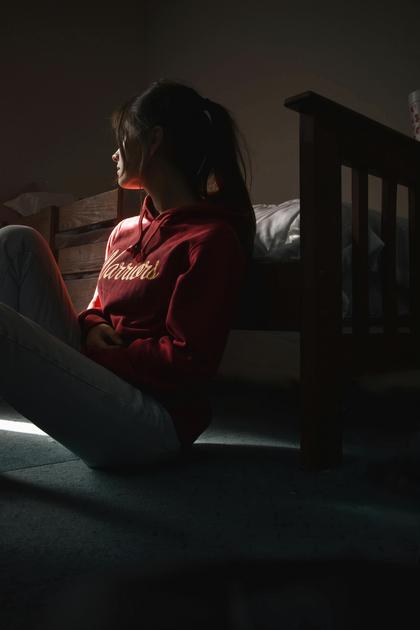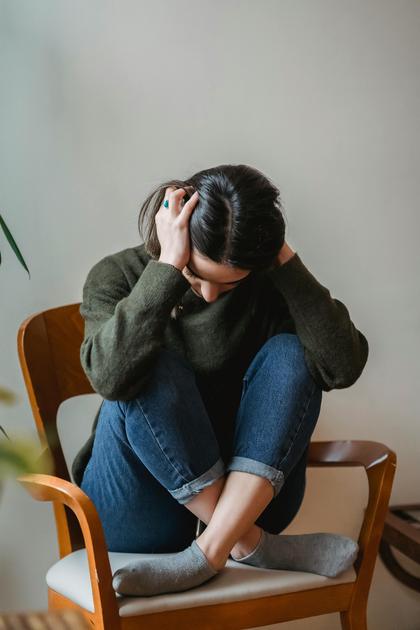Chronic Anxiety in Women: Discover Causes and Natural Solutions
Many women over 30 experience chronic anxiety that often feels overwhelming. Hormonal fluctuations, stress, and life changes can contribute to this persistent anxiety. If you find yourself feeling anxious more often than not, know that it’s okay—and you’re not alone. In this article, we will delve into the causes behind chronic anxiety in women and explore natural solutions that can empower you to reclaim your peace of mind.
Understanding Chronic Anxiety and Its Impact on Women
Chronic anxiety affects many women, particularly those over the age of 30. It is more than just occasional worry; it can become a persistent feeling that impacts daily life, relationships, and overall well-being. The overwhelming sensation of dread, apprehension, and restless nights can lead to feelings of isolation and frustration. While these feelings are experienced uniquely by each woman, they share common roots that can often be traced back to hormonal changes, social pressures, and environmental factors.
For many women, anxiety can settle in as a constant companion, leading to symptoms like fatigue, insomnia, and overwhelming stress. As the pressures of juggling work, family, and personal desires mount, it can feel nearly impossible to escape the cycle of worry.
Understanding that you are not alone in this struggle is crucial. Chronic anxiety is a shared experience, and there are paths to healing.
The Role of Hormones in Women’s Anxiety Levels
Hormones play a significant role in women’s mental health, impacting mood and anxiety levels. Fluctuations in estrogen and progesterone, especially during critical life phases such as puberty, menstrual cycles, pregnancy, and menopause, can exacerbate feelings of anxiety. For instance, many women report increased anxiety levels during premenstrual syndrome (PMS) and menopause. These hormonal shifts can lead to sensitivity, mood swings, and heightened anxiety.
Recognizing how your hormones affect your mood can empower you to better manage your anxiety. Keeping track of your cycle and noticing patterns related to your emotional state can provide insights that help in addressing chronic anxiety.
Common Causes of Anxiety in Women Over 30
As women enter their thirties and beyond, various life changes can contribute to chronic anxiety. Here are some common triggers:
- Life Transitions: Marriage, parenting, career changes, and caring for aging parents can create significant stress.
- Social Pressures: The expectations placed by society regarding success, beauty, and family life can leave many women feeling inadequate or overwhelmed.
- Physical Health: Chronic health issues, weight fluctuations, or hormonal imbalances can complicate mental health.
- Past Trauma: Unresolved trauma from childhood or previous relationships can resurface, contributing to anxiety levels.
Understanding these causes is essential. Recognizing the triggers allows women to take proactive steps in managing their anxiety effectively.
How Stress Amplifies Chronic Anxiety
Stress is a major amplifying factor for chronic anxiety. When we experience stress, our bodies release adrenaline and cortisol, the hormones responsible for the fight-or-flight response. In an age where constant stress seems unavoidable, these hormones can remain elevated, leading to chronic anxiety.
Common sources of stress include:
- Work Demands: High-pressure jobs or workplace conflict can lead to daily stress.
- Family Responsibilities: Balancing kids and home life can create feelings of being overwhelmed.
- Financial Worries: Managing bills, debts, and the cost of living can weigh heavily.
Implementing stress management techniques is crucial to break this cycle. Addressing and mitigating stressors can lead to reduced anxiety levels and improved mental health.
Natural Solutions to Combat Anxiety for Women
There are many natural solutions that women can explore to combat anxiety. These approaches may vary by individual, but several popular methods have proven effective for many:
- Herbal Supplements: Herbs like chamomile, lavender, and valerian root have calming properties that can help alleviate anxiety symptoms.
- Aromatherapy: Essential oils can create a calming atmosphere, promoting relaxation. Consider using lavender or bergamot to soothe nerves.
- Deep Breathing Exercises: Simple breathing techniques can ground you, helping to reduce immediate feelings of anxiety.
Women have found that incorporating these natural solutions can enhance their ability to cope with daily stressors and reduce symptoms of chronic anxiety.
Holistic Approaches: Mindfulness and Meditation
Mindfulness and meditation practices are powerful tools for managing anxiety. They encourage a focus on the present moment, which can help quiet overwhelming thoughts. Practicing mindfulness can take several forms:
- Guided Imagery: Visualizing peaceful places or memories can help create a mental escape from stress.
- Body Scans: Bringing awareness to physical sensations helps to release tension and recognize stress points.
- Mindful Movement: Activities such as yoga or tai chi combine physical movement with mindfulness, promoting overall well-being.
Integrating mindfulness into daily routines can build resilience against anxiety, creating a sense of calm amidst the chaos of life.
Nutritional Changes to Alleviate Anxiety Symptoms
What we eat can have a direct impact on our mood and anxiety levels. A balanced diet rich in vital nutrients can support mental well-being. Consider these nutritional changes:
- Omega-3 Fatty Acids: Found in fish, flaxseeds, and walnuts, these fats are known to support brain health.
- Whole Grains: Incorporating whole grains can stabilize blood sugar levels, reducing mood swings.
- Fruits and Vegetables: Nutrient-dense foods provide vitamins and minerals essential for neurotransmitter functioning.
To support mental health, focus on whole food options that nourish your body and mind. Recognizing the connection between diet and emotional health enables you to take positive action.
Physical Activity: The Natural Mood Booster
Regular physical activity is one of the most effective natural remedies for anxiety. Exercise releases endorphins, known as the body’s natural stress relievers. Engaging in physical activity can take many forms:
- Walking: A daily walk can clear your mind and elevate mood.
- Dancing: Enjoying music and moving can lift spirits while feeling pleasurable.
- Group Classes: Participating in yoga or fitness classes fosters a sense of community, which is vital for emotional support.
Finding a form of movement that you enjoy makes it easier to integrate into your routine. The key is consistency; physical activity can dramatically enhance your mood and reduce anxiety symptoms.
Building a Support Network: Talking It Out
A strong support network can provide comfort and strength during tough times. Sharing experiences with trusted friends or family members can lighten the burden of anxiety. Here’s how to build that support system:
- Join Support Groups: Many women find comfort in groups that share common struggles.
- Consider Therapy: Professional help from counselors can offer guided support and coping strategies.
- Communicate Openly: Don’t hesitate to express your feelings to those close to you. Vulnerability fosters connection.
Community is critical. Knowing that you have people who care creates a safety net during anxious moments.
Embracing Change: Your Journey Towards Healing
Embarking on the journey to manage chronic anxiety is a process of embracing change. It involves recognizing challenges and empowering yourself to take manageable steps towards healing. Many women have faced similar struggles and found ways to overcome them, reclaim their lives, and thrive. Remember, every small effort counts.
Embrace the possibility of a calmer, more fulfilling life. By taking these steps, you too can join hundreds of women who are transforming their experience with anxiety. Your path to healing begins with the first small step towards change. Discover more about how to navigate this journey effectively.











